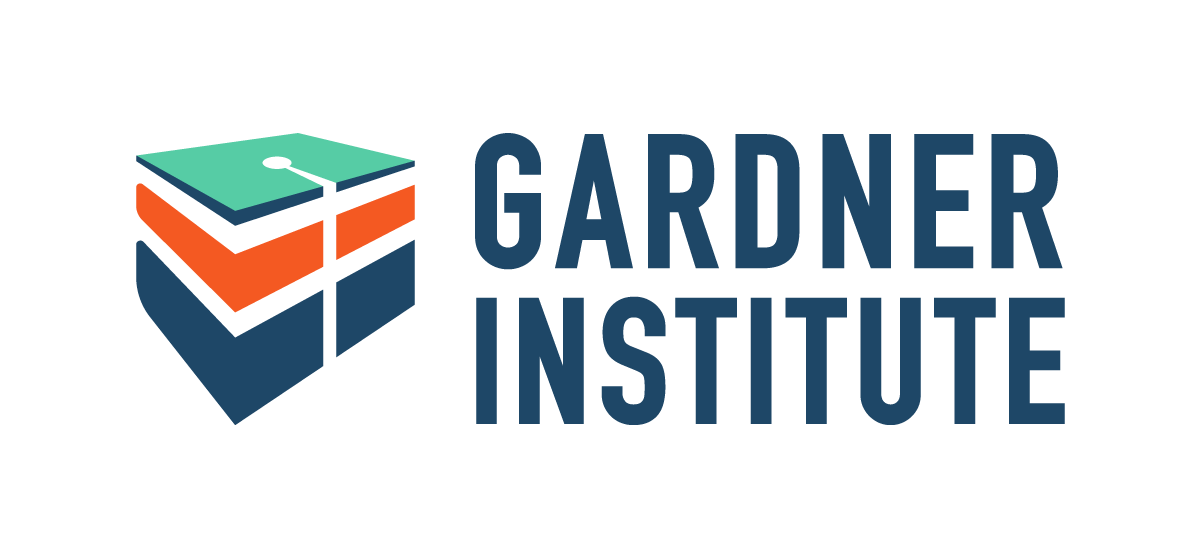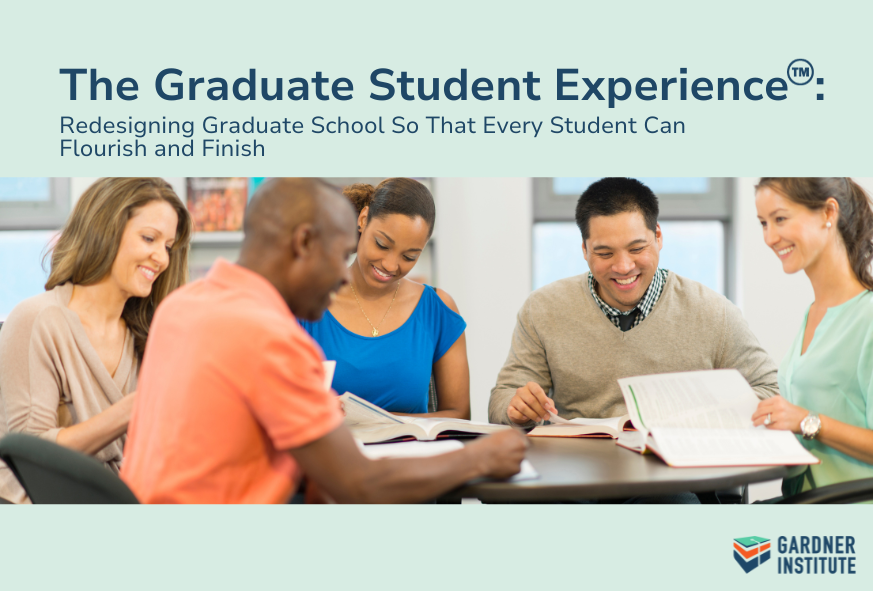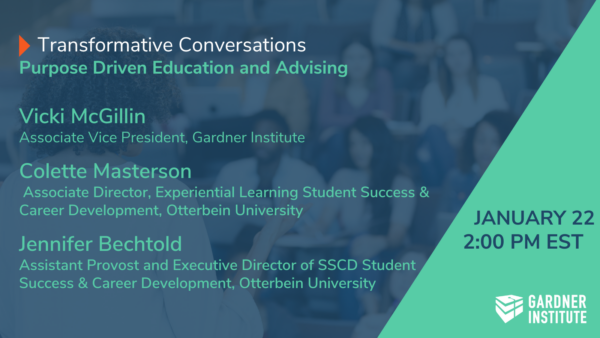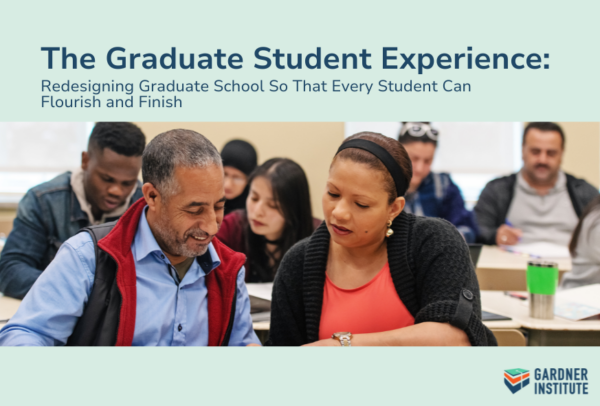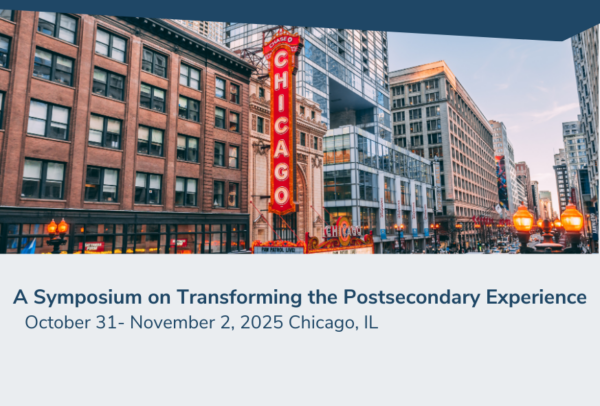The Graduate Student Experience™
Redesigning Graduate School So That Every Student Can Flourish and Finish
March 25-27, 2024
Asheville, NC
Discover the untapped potential of graduate education at The Graduate Student Experience™ conference. While much attention has been focused on undergraduate education, it’s time to give graduate students the same level of consideration. Join us as we discuss holistic approaches to student success, covering topics such as retention, mental health, and career preparation. By attending, you’ll help shape the gold standard for global graduate education and better serve our nation’s interests.
Don’t miss this opportunity to contribute to the future of graduate education.
This event is featured in news articles below:
Rationale
While undergraduate education has received much attention over the past forty years, with specific focus on concrete ways to increase student success (e.g. “first year experience”), the same attention has not been paid to graduate students. We think it is time for a more deliberate set of efforts to increase student success using a holistic perspective that addresses student retention, progression, and completion rates, mental health and wellbeing, and career preparation. We are inviting your participation in the inaugural convening to discuss improving the graduate school experience in order to better serve our national interests as the gold standard for global graduate education.
Call to Action
Students elect to attend graduate school for a variety of reasons. The job market is increasingly competitive. With nearly 24% of American citizens holding a bachelor’s degree (US Census Bureau, 2022), many are looking to receive advanced training to better position themselves in a broad market. The professoriate will continue to grow and require advanced degrees to become academic leaders. Industry leaders increasingly hold advanced degrees, which bolster innovation, entrepreneurship, and global impact.
Our aim is threefold: to reduce graduate student withdrawals and separations, enhance student experience and wellbeing, and strengthen post-graduate outcomes. Our focus begins at the point of matriculation and extends to graduation and beyond. We are focused on holistic approaches to retention, progression, and completion.
Innovate with Us: Transform Graduate Education
- graduate school administrators
- graduate faculty and staff of graduate colleges/schools
- graduate academic affairs / student affairs/ student success administrators
- student success researchers in higher education
- foundation program officers
state - coordinating/governing board staff
We seek participation from faculty, staff, and administrators representing colleges and universities that offer research-heavy graduate programs as well as those that offer primarily professional degrees, that are seeking evidence-based approaches to better understand and support the graduate student experience.
Utilizing presentations, brainstorming, problem-solving interactions, and small group shareouts, the sessions will focus on institutional practices and case studies that highlight innovative approaches to graduate student success. Shared resources may include white papers and/or proposals for edited volumes.
Concurrent Session Topics:
- wrap-around services to address food & housing insecurity
- the changing demographics of graduate students as adult learners
- mental health and wellbeing
- family formation and career building
- mentorship models – for peers and advisers
- research interest and initiatives for those who study the graduate student experience
- developing, refining and applying better data on the graduate student experience
- curricular and co-curricular approaches to career development
- workforce readiness
- teaching preparation and faculty development for the future professoriate
- financial literacy
- professional development academies
- the important role of cultural affinity groups
Session Types
Concurrent sessions will be action focused:
- Presentation: 60-minute presentation including 15 minutes for discussion
- Small working group or Roundtable Discussion: Meetings around a common theme or issue: 60 minutes for convening, conversation, sharing out and identification of action items
- Panel discussion: 60 minutes, moderated, with 3 or more panelists
- Case studies: 60 minutes. Highlight institutional efforts, may focus on one or more institutions
- Resource creation: 60 minute. Discussion to develop better data collection or scholarship on the graduate student experience
- Workshop: 2-3 hours for both a didactic and interactive session
Plenaries
The Risk and the Resistance – Dismantling the Toxicity in the STEM Ecosystem
Presenter: Dr. Ebony McGee, Professor of Innovation and Inclusion in the STEM Ecosystem at Johns Hopkins University’s School of Education, Department of Mental Health, Johns Hopkins University
This presentation delves into the intricate landscape of the STEM ecosystem, scrutinizing the prevailing risks associated with its current state and demographics. A thorough exploration of empirical findings will shed light on racialized stress and fatigue especially in Black communities. We will delve further into the role of advancing technologies such as artificial intelligence, and their implications, amplifying both the opportunities and the problems in the landscape. An analytical retrospective into the history of STEM will elucidate how we arrived at this juncture. The factors influencing the role of STEM institutions and companies in potentially perpetuating or mitigating these issues will also be identified.
The second part of the presentation will outline the consequential impact of these risks on individuals and communities within STEM. The concept of the ‘Recovering Engineer’ and facets like the ‘Black and Pink Tax’ will spotlight the existing inequities. The strain on brilliant individuals grappling with economic difficulties and the psychological impact manifesting as Impostor Syndrome will be addressed.
Finally, we will step into the realm of resistance, exploring practical strategies for combatting these issues. We will examine the importance of stereotype management, the necessity for ethical considerations within this equity conversation, and the potential of social network analysis towards fostering a supportive environment. The presentation concludes with a revolutionary proposal to dismantle the toxicity in the STEM ecosystem, invoking the principles of Afrofuturism as an empowering vision for a racially and socially equitable STEM future.
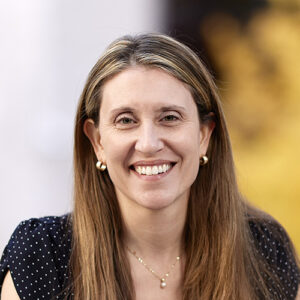
Building Bridges in Graduate Education: Wrap-around services and the vital role of community in fostering student success
Presenter: Alyssa Crittenden, Vice Provost for Graduate Education and Dean, Graduate College, University of Nevada, Las Vegas
Many university administrators were drawn into graduate education to make a difference. For me, this was a call to disrupt inequitable systems in higher education. While we have known for decades that graduate training (particularly at the doctoral level) needs serious renovation, systemic change is slow across the U.S. university system. Many approaches to reducing structural barriers focus on building recruitment pathways, changing admissions policies, and providing additional graduate funding, particularly for first-generation college, low-income, and/or students from underrepresented communities. There is very little discussion, however, of the critical need to recognize and cultivate the knowledge, skills, and strengths that historically marginalized students bring to graduate education. Using case studies from the University of Nevada, Las Vegas (UNLV), I highlight the central role that wrap-around services and community building play in the establishment of holistic support structures. I highlight efforts to reduce housing, food, and technology insecurity and the expansion of cultural affinity groups and programming on campus. This work represents the ongoing process of building bridges between university administrators, faculty, staff, students, and the communities we serve. I argue that this type of ongoing collaboration and a shared commitment to equity are key to effecting meaningful change in graduate education.
Addressing Silos: A Shared Vision of Student Success For Undergraduate and Graduate Students
Drew Koch, CEO, Gardner Institute
All of us are familiar with the organizational silos found at our own institutions. Two of the biggest and unchallenged silos are undergraduate and graduate education, lumbering on in peaceful but separate co-existence. Leaders from the Gardner Institute, John N. Gardner the Co-Founder and Drew Koch the CEO, will address two considerations:
- Why is a non-profit organization focused on undergraduate student success turning its attention to graduate student success; and how might this relate to the interface of undergraduate and graduate education at your institution?
- How to explore the ideal integration of undergraduate and graduate education at your institution for the purposes of producing more successful students at all levels. And how might you organize and pursue an internal process to do just that? The academy has 40+ years of improving the success of first-year students. It is time to expand the model for even greater impact.
Presentations
Academic Learning Environments & Graduate Student Sense of Belonging
Presenter: Steve Desir, Assistant Professor of Research, Rossier School of Education and Director of Professional Learning & Organizational Development, University of Southern California
In graduate education, the lab, classroom, and candidacy exam are all designed to provide graduate students with opportunities to build their scholarly identity and knowledge as academic professionals. Panelists will present emerging research designed to increase awareness of how these learning environments function as racialized and gendered spaces that can advance or inhibit graduate students’ sense of belonging in their disciplinary communities. This research panel is designed to provide faculty and graduate program administrators who are interested in advancing equity in graduate education with the skill-set to identify issues of race and gender that emerge in academic learning environments.
The Great Unknown: Discussions on How to Gain Insight into Graduate Student Success Nationally
Presenter: Brent Drake, Senior Vice President for Operations and Research
Thanks to almost two decades of institutional data collection from the National Center for Education Statistics it is easy for an individual to discover that of all degree seeking undergraduate students that started at a postsecondary institution in fall 2013, 37.2% that started at a two-year institution had completed an award by fall 2021, and 52.0% who had started at a four-year institution had completed an award. Given the long history of submitted data, we can examine graduation rates for multiple entry cohorts by institutional characteristics, time to degree, student sex, student race/ethnicity, student first-year loan status, and student Pell awards. Obviously, this level of insight allows policy makers and institutions to drive student success efforts at the undergraduate level. Unfortunately, there is no comparable set of nationally collected data on the success of graduate students. This presentation will focus on the state of what data is currently available at a national level. It will then present an admittedly incomplete measures of disaggregated success that can be derived from it. Finally, potential frameworks for filling the data gap will be discussed. Participants will have an opportunity to brainstorm and discuss a potential path forward to allow for greater insight into the success of graduate students nationwide.
Registration and Fees
$445, including opening session dinner, and breakfast and lunch on March 26 and 27.
Full-time Graduate Students: $150
Register four people from your institution and the Dean or Associate Dean of the Graduate School attends for free. To take advantage of this deal register 4 people and then email events@gardnerinstitute.org and we will send you a code to register the Dean or Associate Dean.
The registration fee includes dinner, two breakfasts, two lunches, refreshment breaks, and conference materials.
Refund Policy: There will be no refunds given after February 1, 2024. All refunds will be subject to a 5% processing fee. Registration can be transferred to another participant before March 15th, no transfers will be allowed after that. Requests must be made in writing to events@jngi.org.

Conference Location Information:
Asheville, North Carolina.
Asheville offers robust cultural offerings through its large array of independent businesses that serve up an eclectic mix of food, art, tours, music, and goods all in the beautiful Blue Ridge Mountains. The city caters to foodies and art lovers!
Hotel Information:
The block of rooms for this event is now closed. but there are still rooms available at the Doubletree.
Doubletree, Biltmore is located minutes from the shops and restaurants of Biltmore Village and the historic Biltmore Estate, with easy access to the Blue Ridge Parkway.
Air Service:
Asheville is served by both its own regional airport (AVL), 15 miles from the hotel, and by the nearby (about 50 miles) Greenville/Spartanburg (GSP). Airlines providing service directly into AVL are: Allegiant, American, Delta, Jet Blue, Sun Country, and United
